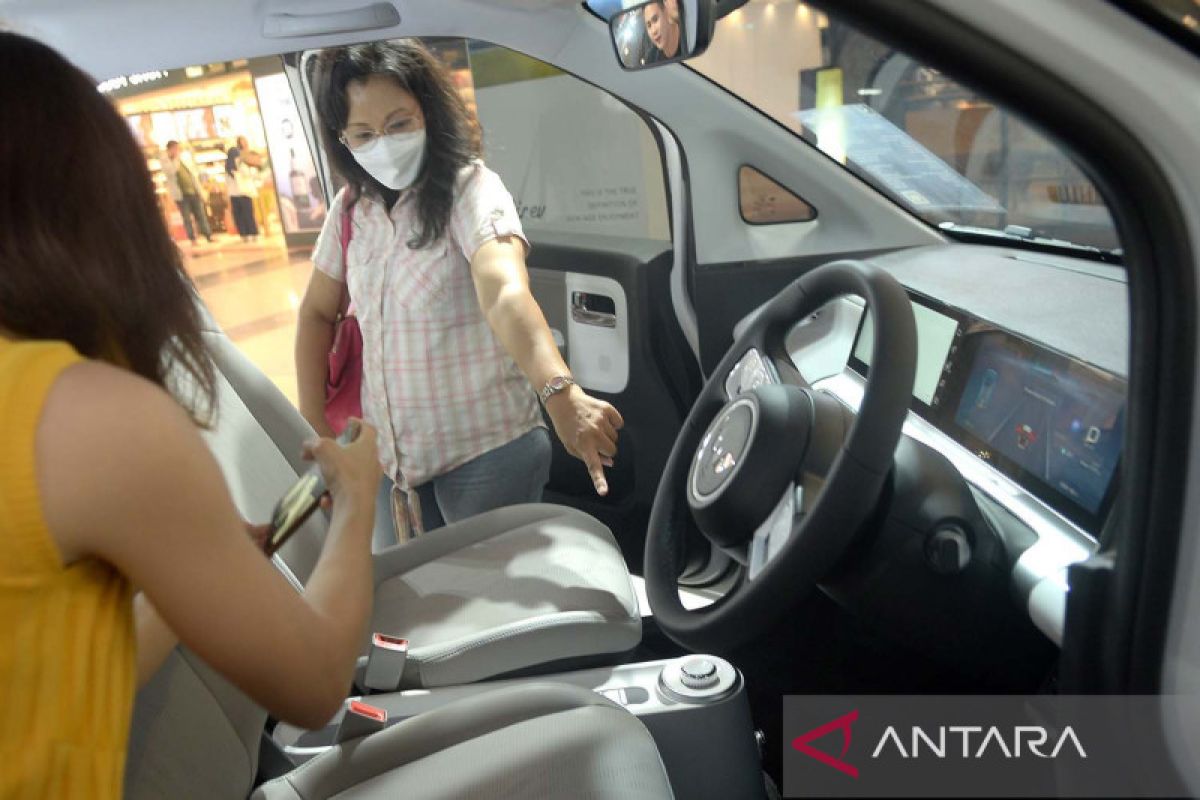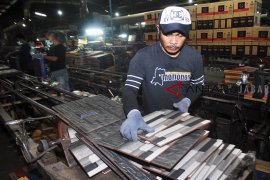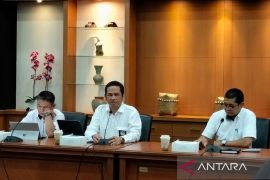This aims to explain in further detail for Industry Minister Agus Gumiwang's statement regarding carbon emissions of electric cars, which are claimed to be higher than those produced by hybrid and conventional cars and have been questioned by several parties.
Director of Maritime Industry, Transportation and Defense Equipment (IMATAP) of Kemenperin Hendro Martono explained that several parties did not fully understand the context in the Kemenperin Decarbonization working meeting held on October 11, 2023, when the minister made the statement.
"During the working meeting, strategic efforts were discussed that referred to the results of several studies, including those by McKinsey and Company, which saw that the process of making BEV batteries emits around 40 percent higher emissions than hybrid and gasoline (cars) due to the extraction process of lithium, cobalt, and nickel minerals," he noted in a statement in Jakarta, Saturday.
Referring to the study, Martono stated that in order to achieve decarbonization of the electric car ecosystem, renewable electrical energy is needed by reducing the mix of fossil electricity sources for both electric vehicle energy and mineral processing for making the batteries themselves.
Furthermore, a battery recycling facility should be available, so that used battery-based electric motor vehicle (KBLBB) batteries can be recycled or used as secondary storage energy, thereby enabling an end-to-end ecosystem of KBLBB to be formed.
Martono also drew attention to a study of life cycle emissions by Polestar and Rivian in 2021 in Europe, North America, and Asia Pacific, which was reported in the Polestar and Rivian Pathway Report (2023), stating that the emissions produced by electric vehicles were lower, namely 39 tons of carbon dioxide equivalent (tCO2e), compared to hybrid electric vehicles (HEV) of 47 tCO2e, and conventional or internal combustion engine (ICE) vehicles that reach 55 tCO2e.
"This emission figure does not differ too much per ton of CO2 per km if, at the same time, the gasoline used is more bio or green fuel," he remarked.
Martono emphasized that life cycle emissions showed the total amount of greenhouse gases and particles released during a vehicle's life cycle from production to use and disposal, expressed in tons of carbon dioxide equivalent (tCO2e).
"These emissions are still very dependent on fuel energy input from upstream and downstream (the vehicle itself) and will gradually decrease if this input is made from green fuel," he explained.
Martono also regretted criticism from several parties that failed to fully understand the context. He suggested that they look at the KBLBB road map or EV road map created by the Industry Ministry as well as strategic steps to achieve net zero emissions faster than the government's target of 2060 through the transportation equipment sector that leads to green mobility.
Through this roadmap, the government targets to encourage a larger share of electric two-wheeled and four-wheeled vehicles by 2035 as compared to fossil fuel vehicles.
In order to encourage the acceleration of EVs, Kemenperin and the Coordinating Ministry for Maritime Affairs and Investment are revising Presidential Decree 55 of 2019 concerning the Acceleration of the Battery Electric Vehicle Program for Road Transportation to make it attractive for EV manufacturers to enter Indonesia.
"This is necessary to strengthen supply, so that people can also enjoy electric vehicles at affordable prices," he remarked.
"Apart from that, the battery factory, which is planned to start operating in 2025, can reduce the price of EV vehicles, considering that the biggest cost factor is in the battery components," he added.
Martono emphasized that Kemenperin, as the policy maker, is always working hard to realize green mobility. He expressed hope that stakeholders would not process opinions from fragments of statements without being accompanied by a complete, educational, and constructive understanding of the context.
"We suggest that in the future, a crosscheck be carried out before conveying news with destructive narratives regarding the positive efforts that have been made by the government. We have an obligation to provide news corrections that are equipped with technocratic texts for opinions that are wrong and tend to be misleading," Martono stressed.
Related news: Ministry pursuing EV ecosystem development target
Related news: EV battery factory is commitment in downstreaming: Minister
Translator: Ade Irma Junida, Cindy Frishanti Octavia
Editor: Arie Novarina
Copyright © ANTARA 2023












